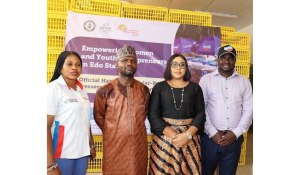
Nkasiobi Oluikpe
While efforts of intervention agencies and donors are being commended, a lecturer from Stanford University, William H. Neukom, has revealed that data from the annual Rule of Law Index, published by the World Justice Project, shows compelling correlations between the rule of law and positive societal outcomes, including economic development, stronger democracies, more peaceful communities, and better health and education.
Driving home his point, Neukom explained that when effective and independent institutions hold public and private officials accountable and curb corruption, lifesaving food and medicine can reach those who need it. When laws secure equal rights and institutions prohibit discrimination, traditionally marginalized communities can progress. When businesses can count on predictable laws, enforcement of contracts, and impartial resolution of their disputes, investments flow and economies flourish, he said.
While advising that supporting efforts to strengthen the rule of law be made a top philanthropic priority, the Don noted that for the above stated reasons, organizations as varied as the World Bank, the U.N. Environment Programme, the U.S. Chamber of Commerce, and the World Food Programme, have made promoting and defending the rule of law central to their works.
“As the lead lawyer for Microsoft for more than two decades, I traveled the world and saw firsthand the impact of rule-of-law gaps on people everywhere as well as on the opportunities for the company.
“It became clear to me that while investments in a wide range of causes could help treat symptoms of societal problems, strengthening the rule of law was the best way to bring about long-term structural cures.”
He explained further that no matter what kind of change donors seek, their investments will go further when the rule of law is stronger. Supporting it, he emphasized, should be standard practice for all grant makers who strive to create thriving communities and a healthy and peaceful planet.






